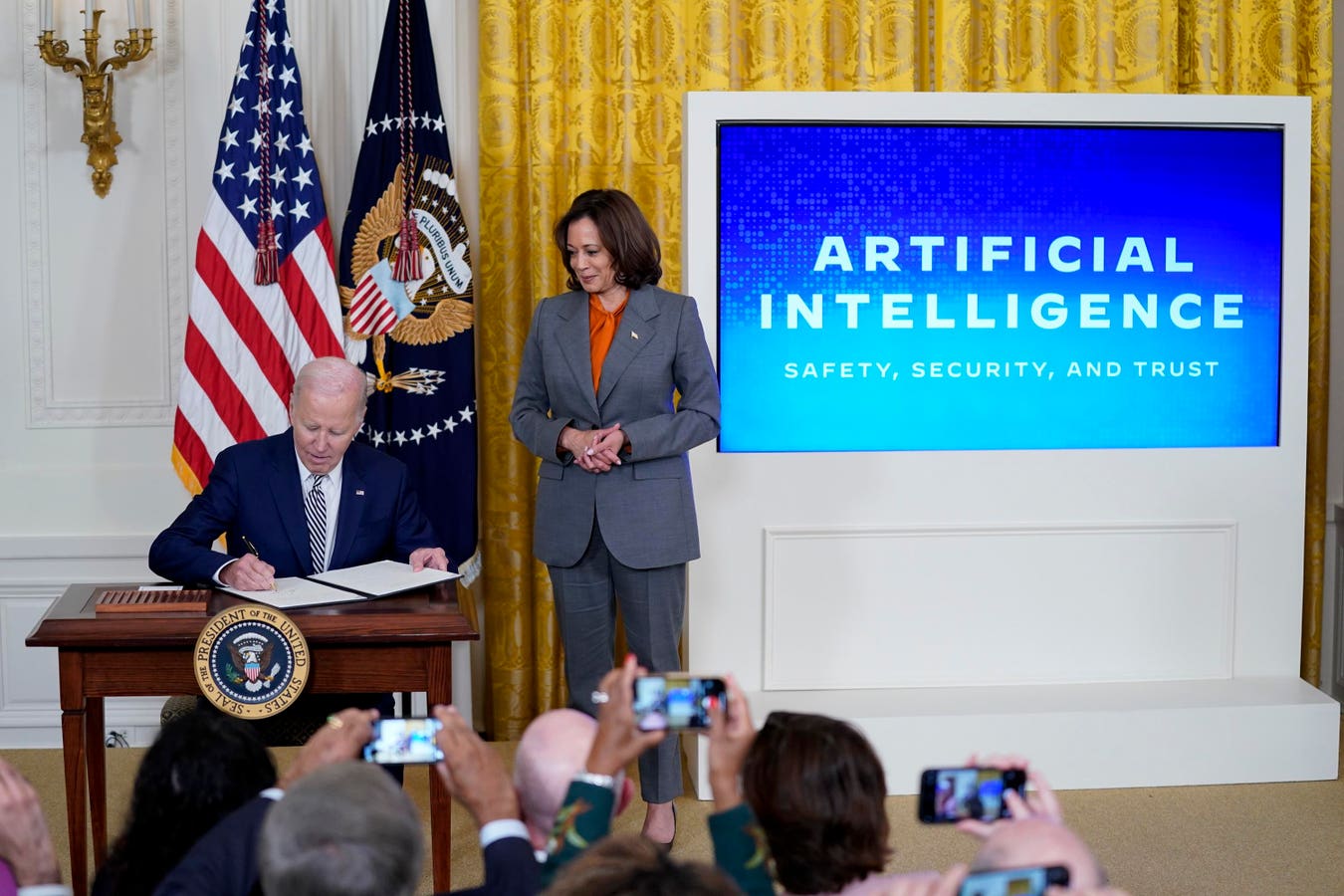
Artificial intelligence startups welcomed President Joe Biden’s new executive order which placed regulations on the technology, though some CEOs expressed concerns over whether it could impede smaller companies and stifle innovation.
The White House’s order puts guardrails on the development and use of AI, most notably granting itself oversight on future large language models — including OpenAI’s GPT-5 and Google’s Gemini — before they can be released to the public.
It’s the culmination of several months of discussions between the Biden administration and the tech sector, which has steered significant capital and resources into AI since the viral release of ChatGPT last November. In May, Biden and Vice President Kamala Harris met with the CEOs of Google, Anthropic, Microsoft and OpenAI — four leading companies in the sector, each of whom is spending billions of dollars or more on AI development. OpenAI is backed by a $10 billion investment from Microsoft, whereas Anthropic has received several billions in funding from Amazon and Google.
Cloud vendors monopolizing AI after heavy investments is akin to privatizing the electric grid.
But Biden’s new order has given pause to a class of upstart companies looking to shake up tech’s current landscape. “It is crucial for the government to foster an open AI ecosystem, especially for startups,” Florian Douetteau, cofounder of Dataiku, a startup which helps companies to build AI tools, told Forbes in an email. “Cloud vendors monopolizing AI after heavy investments is akin to privatizing the electric grid. Such monopolization would stifle innovation and deter smaller players from contributing to the AI evolution.”
The executive order includes a declaration that the federal government will promote a “fair, open and competitive” ecosystem by helping developers and small businesses access technical resources and commercialization opportunities. Douetteau said he believed this added regulation could be helpful, as it might allow the Federal Trade Commission to “exert its authority early in the creation of the ecosystem.”
“We must remain cautious that [the] government doesn’t construct a regulatory regime that entrenches the power of the incumbents,” said Aidan Gomez, cofounder of Cohere, a startup building its own AI models, in an email to Forbes.
America is built on risk-taking, not red tape.
To Gomez — who attended a session of Senator Chuck Schumer’s AI Insight Forum and was one of 15 tech company executives to make a voluntary commitment to the White House to manage AI risk — whether the order benefits incumbents or smaller startups will “depend heavily on implementation and enforcement.” Historically, the Biden administration has struggled to enforce antitrust laws on the tech sector. “I know the government is extremely conscious of oligopoly dynamics hampering dynamism, so I’m optimistic,” Gomez wrote.
Others noted the added regulatory burden could benefit the incumbents, who can more easily afford the associated costs. “Overregulation, such as limits on model size and stringent reporting requirements, will create barriers that only large monopolies can overcome,” enterprise search startup Hebbia’s founder George Sivulka wrote in an email. “America is built on risk-taking, not red tape.”
Newcomer startups may not have the capital required to “meet extensive testing and regulatory requirements like the AI giants can,” Evan Reiser, cofounder of cybersecurity software firm Abnormal Security, wrote in an email. Many of them are currently building AI models and tools using open-source models, which tend to be cheaper to use and more flexible to customize, as their foundation. It’s not clear how the executive order applies to open-source AI, though Richard Robinson, cofounder of legal tech startup Robin AI, said in an email that regulation directed at large open-source model providers like Meta could have trickle-down impact on startups: “If these privately fine-tuned models need to be put through safety and security regulations, it will almost certainly limit organizations’ ability to rapidly build and deploy new models.”
Ben Buchanan, AI special advisor to the White House, refuted the notion that the executive order is aligned to tech incumbents’ interests. “I’m not sure if Big Tech companies have had a significant impact in shaping this executive order. Certainly no more so and potentially less so than civil society, academia and other folks,” he told Forbes. “This is a case where the ecosystem is pretty dynamic and we want to keep it that way.”
David Jeans and Richard Nieva contributed reporting.
